Nietzsche's Philosophical Psychology

Interview by Richard Marshall

'According to Nietzsche we interpret ourselves by self-applying the folk-psychological framework we have acquired from the society we live in. On the other hand, such frameworks are wrong. Thus, as the way in which we make sense of our mental life is based on a wrong picture of it, it does indeed turn out that our reflective awareness of it is deeply distorted.'
'The first-person perspective that we identify with our reflectively conscious self is not some sort of higher-order viewpoint that exists over and above, or is in some sense detached from, that of the drives. It’s just the perspective of the dominant drive(s).'
'As Nietzsche believes that drives and affects are the causes of human action, his view is broadly Humean. In fact, Neil Sinhababu argues that there is no substantial difference between Humean and Nietzschean psychology. I’m not sure that’s true, however, for it seems to me that when we zoom in we do find some important differences between them.'

Mattia Riccardi is a philosopher focused on Nietzsche and Kant (primarily, their metaphysics and epistemology) and, more recently, on philosophy of mind. His other areas of interest include morals and philosophy of biology. Here he discusses Nietzsche's philosophy of mind, the role of socialisation, the distinction between Nietzsche's moral and religious psychology, drives, affects, the soul hypothesis, reflective consciousness, pre-reflective consciousness, epiphenomenalism, introspection, agency, higher order consciousness, the ideal human type, and how Nietzsche fits in with the post-Kantian philosophical landscape and whether contemporaries would find useful insights in his approach.
3:16: What made you become a philosopher?
Mattia Riccardi: Well, my story is similar to the one Michela Massimi describes in her interview for 3:16. I too belong to the first generation in my family to get a university degree and, before that, to land to a high school designed to prepare you for that. So I really had no idea what philosophy was until I started being taught it in high school. In Italy, that’s done historically over three years. By the time we reached Plato I already knew what I would study. (I take the chance to officially thank my philosophy teacher, Alessandro Brunelli, who deservingly retired a couple of years ago, for “lighting the flame”.) Furthermore, the EU Erasmus program for student exchange played a role also in my case. The program allowed me to spend my third year abroad, in Tübingen (my BA degree is from Milan State University). Since I really enjoyed the kind of discussion-based seminars I found there, I decided to go back to Germany for a PhD, which I received from Berlin Humboldt University.
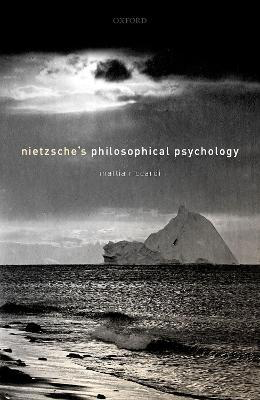
3:16: You’re a Nietzsche expert and have written about his philosophy of psychology. This seems to be where Nietzsche studies is focusing at the moment – is this a result of what is becoming a settled view regarding him that his interests are as a naturalist philosopher, although, rather surprisingly given naturalist philosophy’s usual stance on this, not a “clumsy” one that would rid us of the soul? And is it also becoming more of a focus because what he claims seems to be relevant for contemporary mind sciences– even true?
MR: You’re right that interest in Nietzsche’s philosophy of mind and, more generally, in his views about human psychology (including moral psychology) has increased enormously in the last 20 years or so. (But it wasn’t completely neglected before: for instance, Walter Kaufmann famously called attention to Nietzsche the “psychologist”.) This is surprising, given that Nietzsche writes that “psychology is again the path to the fundamental problems” (Beyond Good and Evil 23).
My impression is that the Heideggerian and postmodernist readings simply blinded Nietzsche scholars on this point. Here, I think Maudemarie Clark’s 1990 book was very important for shaking the anti-empiricist prejudice shared by those readings and, consequently, for paving the way to the idea that Nietzsche is a naturalist, as Brian Leiter, in particular, has argued. As you point out, this idea is surely among the main factors motivating scholars to go back to his views about human psychology.
Now, about the naturalists Nietzsche calls “clumsy” and whose position he rejects: this is something we find in Beyond Good and Evil 12, where he says that certain naturalists are “clumsy” because they want to get rid of the “venerable” soul-hypothesis altogether. Rather, he claims we should adopt a new picture of the soul. Now, who are these clumsy naturalists? Hardcore materialists fit the description. My hint, however, is that Nietzsche is (also) thinking of the neo-Kantian Friedrich Albert Lange, who famously advocated a “psychology without the soul”: a psychology finally freed from that “venerable” but ill-thought notion.
Why does Nietzsche think that soul eliminativism is wrong? Maudemarie Clark and David Dudrick have suggested that what he finds appealing in the traditional soul notion is that there is a normative side to it (think, for instance, of Plato’s tripartite soul theory). Thus, clumsy naturalists simply fail to take into account the evaluative dimension of human psychology. Though I don’t agree with Clark’s and Dudrick’s understanding of that dimension, I agree with them that the clumsy naturalists’ mistake consists in not appreciating it.
3:16: As an overview of what needs to be explained, can you sketch for us his account of the role of socialisation in the formation of human psychology, and what are the key items that he draws on in his psychology?
MR: As we just saw, Nietzsche proposes a new conception of the soul. This conception says that the soul is a “social structure” made up of “drives” and “affects”. So affects and, especially, drives are the most important elements of human psychology according to him. Furthermore, the “social structure” they build is hierarchical: some drives are dominant, while others are subordinate. Socialization has two main effects on human psychology: first, it shapes the hierarchy of the drives. For instance, aggressive drives are typically curbed by socialization. This means they become subordinated to other drives. Second, socialization brings with it the emergence of a specific form of consciousness I call reflective consciousness (Nietzsche simply calls it consciousness). This form of consciousness depends on communication and, thus, on language. Though Nietzsche thinks there are precursors of it in the animal realm, language-dependent reflective consciousness is a specific human thing. At the same time, he also thinks it is a “superficial” phenomenon, not only because we could think, will and act without it, but also because most of the time we do think, will and act without it, as he puts it in Gay Science 354.
3:16: You draw a distinction between his moral and religious psychology, on the one hand, and his philosophical psychology on the other don’t you? Can you say what the distinction captures, and how it fits into what you’ve called Nietzsche’s ‘semiotic claim’?
MR: Well, I drew that distinction to make clear what my book is about. Two very recent books—by Mark Alfano and Brian Leiter—are explicitly devoted to Nietzsche’s moral psychology. So I wanted to say right away that my focus was different. What I was interested in is Nietzsche’s general picture of how we work psychologically. That’s what I call his philosophical psychology. Moral psychology has a narrower scope, for it is about how we work psychologically as moral agents. But as Nietzsche is drawn to problems concerning how the mind in general works because of his primary interest in how the moral mind works, Nietzsche doesn’t treat them separately. So one often has to extract his general views about human psychology from his moral psychology.
Nonetheless, I think he provides a general picture of the human mind that is both original and philosophically interesting. At least, that’s what I wanted to show in my book. About what I call the “semiotic claim”: that’s the claim that “morality is just a sign language of the affects”, as Nietzsche writes in Beyond Good and Evil 187. It is a crucial claim because it links his view of moral psychology to his general view of the human mind. As we saw, he takes that drives and affects are the primary items of human psychology. What the “semiotic claim” says is that morality is an upshot of our affective life. Interestingly, we find a first formulation of this claim already among Nietzsche’s unpublished notes from 1880 (Beyond Good and Evil was published in 1886), when Nietzsche was working on Daybreak. This is also the time Nietzsche starts to work out his drive psychology, which shows (unsurprisingly, I guess) that his views about general human psychology and his views about moral psychology developed in parallel. (In fact, in the first formulation he doesn’t mention affects, but writes that morality is “an interpretation of physical drives”. Here, the claim is still introduced by a “Maybe”.)
3:16: So as you’ve sketch, the notion of a drive is important. So what is a drive for Nietzsche and was there a history of such a notion that informed his approach?
MR: A drive (“Trieb” is the German word, the same made (in)famous by Freud) is a goal-directed behavioral disposition. For instance, the hunger drive is a food-searching disposition. There are three important points to be stressed about Nietzschean drives. First, they are characterized by an urging character. They activate the agent from within, so to speak. Second, I think Nietzsche has an energetic conception of drives somewhat similar to the one later endorsed by Freud. As he (Nietzsche) often puts is, drives aim at “discharge” or “release”. Third, drives embody a certain evaluative perspective. For instance, the hunger drive makes me see the bread on the kitchen table as edible and, thus, as valuable (as an object suitable to satisfy its own goal). The underlying idea is that we do not experience things in some sort of detached way, but as having (positive or negative) value for us. Evaluations permeate how we perceive the world.
This explains why Nietzsche thinks there is a normative side to our soul: the soul is made up of drives and drives are the source of experience’s evaluative character.I now come to the second part of your question. The notion of drive starts playing a key role in German philosophical and scientific thought in the late 18th century. That story is very complicated and gets even worse when the usage of “drive” gets entangled with that of “instinct”. (There’s a paper by Paul Katsafanas in which he usefully maps some of this terrain.) In my book, I ignore most of it. Rather, what I focus on is the most relevant direct scientific source Nietzsche drew on to work out his mature drive psychology. That’s the early work in Darwinian ethology by Georg Schneider (note, however, that Schneider calls it a work of “comparative psychology”). Schneider is unknown today, but his work was well received back then. (In his Principles of Psychology, William James still treats Schneider as an authority on “impulses” (how James translates the German “Trieb”) and instincts. Schneider’s book also got a review in Mind!) I also briefly consider Schopenhauer’s usage of the drive notion. Though he only rarely talks of “drives”, he does so to refer to character traits, which are for him the major explanatory factor of human action.
So I think that’s another important clue to properly understand Nietzsche’s own drive psychology. Interestingly, contrary to Nietzsche and Schopenhauer, Schneider does not take drives to be dispositions, but rather occurrent mental “impulses” with immediate motor effects. Though Nietzsche picks up important ideas from Schneider, here I think he simply sticks to a pre-conception of drives as dispositions he already had (the one we already see at work in the Birth of Tragedy) and that also corresponds to how Schopenhauer uses the term, as we just saw. (Same for Paul Rée, the former friend whose views about moral psychology Nietzsche starts criticizing in Daybreak and who also thought that morality is based on certain basic, dispositionally conceived drives.)
3:16: Affects are another hugely important part of his theory, so what are they and which are the important ones according to Nietzsche? Is his view about them here a bit Humean?
MR: Emotions are paradigmatic examples of affects. But many feelings (such as all pleasurable and painful ones), passions and moods also count as affects. In general, I think Nietzsche takes affective states to have two main features. First, they have a twofold somatic dimension: on the one hand, they have a distinctive embodied phenomenology encompassing visceral sensations, etc.; on the other hand, they tend to have an immediate motor effect. Second, they have an appraisal component: they represent things as having a certain (negative or positive) value. In short, they are valenced representational states.
Of course, as Nietzsche believes that drives and affects are the causes of human action, his view is broadly Humean. In fact, Neil Sinhababu argues that there is no substantial difference between Humean and Nietzschean psychology. I’m not sure that’s true, however, for it seems to me that when we zoom in we do find some important differences between them. An example: while Hume says that passions lack “any representative quality” (Treatise II.3.iii), Nietzsche takes affects to be representational. Moreover, while the conscious/unconscious distinction is crucial to Nietzsche’s view of the human mind, it doesn’t play any similar role in Hume’s one.
3:16: So how does he show that the soul is a ‘society constructed out of drives and affects’ and that this order of the soul is causal?
MR: Well, Nietzsche doesn’t really “show” that, he just puts it forward as a new version of the soul-hypothesis. He also doesn’t explicitly claim that the hierarchic arrangement between drives and affects is causal. But it’s true that I defend a causal understanding of it. Why? Let’s start with a big problem Nietzsche’s drive psychology faces: the homunculus problem. Nietzsche breaks up the mind into drives and argues that they evaluate, aim at discharge, etc. Doesn’t this sort of mentalistic talk—we find a good deal of it in his writings—commit him to a conception of drives as tiny agents populating our mind? If that’s the case, as scholars like Peter Poellner have argued, his view is doomed.
Now, a way to rescue it is to adopt a Dennettian stance to this sort of mentalistic talk. As long as we don’t take it literally, we can allow for it: homunculi aren’t necessarily bad, given that we are aware of their more or less dummy nature. The real problem lies in the explanatory job we assign to such homunculi, for we have to avoid two distinct fallacies. (My discussion of these issues is indebted to Zoe Drayson’s illuminating analysis of the personal/sub-personal distinction.) The first fallacy is illustrated by the following example: if I try to explain how seeing works by postulating a tiny person somewhere in my head that sees the upside-down images projected on the retina, I’m not explaining anything. For my explanation presupposes what it is supposed to explain. The second fallacy is illustrated by the following example: consider an imaginary psychological theory that ascribes pain to brain states. This would be a category mistake, simply because brain states aren’t the sort of thing that can feel pain. Nietzsche’s drive psychology needs to avoid both fallacies to survive.
So let’s go back to the soul order. There are two major proposals in the literature about how drives work. The first one draws heavily on unpublished notes suggesting some sort of neo-Leibnizian view according to which drives really are tiny conscious agents within us. Of course, these would be pretty bad homunculi. Fortunately, however, this picture is confined to the unpublished materials and is never endorsed in Nietzsche’s works. Hence, there’s no reason to take it to be his considered view. The second proposal is the normative reading (as they call it) proposed by Clark and Dudrick. Roughly, the idea is that the arrangement among the drives isn’t just causal, for subordinated drives “recognize” in some way or other the “authority” of the higher-ranked ones. The problem here is the same as before: if drives really possess the capacity to “recognize” and “accept” claims based on legitimate authority, they’re bad homunculi, for these are capacities we can meaningfully ascribe (in a realistic, non “as-if” kind of spirit) only to persons, and not to sub-personal posita. For these reasons I think we should reject both these readings.
My own proposal, then, consists in understanding the hierarchical arrangement among the drives as a causal one. Roughly, higher-order drives “dominate” because they manage to control our mental life. On the one hand, as Ken Gemes have suggested, they control our cognitive resources: for instance, they direct our attention towards items that can satisfy their goal, etc. On the other hand, they determine our affective response to things. This also allows us to better see how drives interact with affects. My suggestion is that drives function as multi-track affective dispositions (a term I picked up from Julien Deonna’s and Fabrice Teroni’s work on emotions), that is, dispositions that cause affective states reflecting the drives’ goals and depending on the situation we are in.
Let’s make an example. Consider the parental drive to care for one’s offspring. This disposition makes me affectively respond in a contextually sensitive way: it makes me feel preoccupation when my kids get in trouble and relief when they get out of it; anger when they’re treated unfairly; etc. The higher-ranked drives are those that shape our affective life in this way, causing us to affectively respond to what’s going on in the way we do. Importantly, this not only includes responses to external things, but also responses to features of ourselves. So according to Nietzsche higher-ranked drives block the discharge of lower-ranked drives (and thus keep them subordinated) by causing a negatively valenced affective response to them. This is what happens, for instance, to the ascetic who feels shame for his or her sexual desire.
This reading has two advantages: first, it allows to make sense of the idea of a hierarchical order among the drives in causal terms, thus avoiding homunculus troubles; second, it provides an explanation of how drives and affects are supposed to interact.
3:16: How does this help us understand his views on consciousness, and in particular the notion of our reflective consciousness?
MR: To answer this question, I start by saying what reflective consciousness is. First, Nietzsche just talks of consciousness. But there are many things we can talk about when we talk about consciousness. So my claim is that the notion of consciousness usually meant by Nietzsche is a form of awareness constituted by the capacity for discursive thought. That’s what I call reflective consciousness (a term employed by Rex Welshon and that is better than the one I used in previous work to pick out the kind of consciousness Nietzsche talks about). That it is discursive means that episodes of reflectively conscious thought are linguistically articulated. We are conscious in that way when we “think in words”, as Nietzsche puts it. Moreover, reflective consciousness is a form of self-consciousness. Traditionally, this notion is contrasted with that of pre-reflective (self-)consciousness, a sort of awareness that does not depend on language and that we can also ascribe to animals.
Now, a first claim that Nietzsche makes is that we are reflectively conscious of only a tiny part of our mental life. So mental states can be either reflectively conscious or unconscious. The question then is: how do we become reflectively conscious of a mental state? When we discursively think about it. This means that Nietzsche’s position can be seen as a version of what is nowadays called a higher-order thought (HOT) theory of consciousness, the basic idea of which is that a mental state is conscious iff it is targeted by a suitable HOT. That’s what I argue for in my book. More precisely, I claim that Nietzsche defends a modest and hybrid version of the HOT theory. Modest, because it is a theory only of reflective consciousness, and not a theory of consciousness in all its forms. Hybrid, because while it says that reflectively unconscious states become reflectively conscious when we discursively think about them, it also says that episodes of reflectively conscious thought themselves do not need to be targeted by a further HOT to become reflectively conscious. In other words, episodes of reflectively conscious thought make other mental states reflectively conscious, but themselves are already reflectively conscious.
So how does reflective consciousness interact with drives and affects? The basic picture is this: most of the time, out mental life is reflectively unconscious. This applies to drives and affects too: most of the time, they shape our experience of things and determine what we do without our becoming reflectively conscious of them. But sometimes we discursively think about our mental life, and in doing so we can become reflectively conscious of them, albeit in a highly opaque and distorted way, Nietzsche thinks. (That’s a point we’ll come back to later.)
3:16: Is this reflective consciousness all our consciousness according to Nietzsche?
MR: As I have mentioned above, reflective consciousness is usually contrasted with pre-reflective (self-)consciousness. Together with other scholars such as Rex Welshon and João Constâncio, I believe that Nietzsche thinks there are also pre-reflective, language-independent forms of consciousness. Mental states that are conscious in this pre-reflective way are for instance perceptions and affects. In my reading, according to Nietzsche these are representational states with pictorial content. But I also argue that for him there is a second kind of pre-reflective consciousness (and thus a third kind of consciousness) which I call qualitative consciousness. Raw feelings and sensations that lack representational content altogether are conscious in this way.
3:16: Is Nietzsche an epiphenomenologist? Should we all be going back to read the Occasionalist literature – after all that was formed as a rejection of Aristotleianism during the rise of mechanistic scientific philosophizing? Would it be useful to place Nietzsche in that context?
MR: I do think that Nietzsche defends a version of epiphenomenalism, so here I agree with Brian Leiter and Rex Welshon. Epiphenomenalist readings have been contested by several Nietzsche scholars, among them John Richardson, Tsarina Doyle, João Constâncio and, in particular, Paul Katsafanas. But Nietzsche does not only say that consciousness is “superfluous”, but says that there is no conscious causation in two of his very late works. Anyway, the kind of epiphenomenalism I ascribe to Nietzsche is modest, but still substantial, I think.
It is modest because its scope is restricted in two ways (that’s why I call it Weak Local Epiphenomenalism; in fact, in the book I argue that other familiar epiphenomenalist claims are similarly restricted): first, it concerns only reflective consciousness, and not all kinds of consciousness; second, it amounts to the claim that no reflectively conscious state is among the causally efficacious mental antecedents of our actions. It is a version of what Eddy Nahmias called “modular epiphenomenalism”—the cognitive processes responsible for reflective conscious thought aren’t involved in the production of actions. These, on the contrary, result from processes involving reflectively unconscious states.
I’m not sure this places Nietzsche in the occasionalist tradition. The only way in which I see a connection between his philosophical psychology and occasionalism (or rather, what I take the latter to be, for I’m far from being an expert about Malebranche & Co.) is this: occasionalists don’t think we really bring about what we do. Rather, we give God “occasions” to intervene and bring about what we (think we) do. The structure of the theory is thus as follows: there is the claim that X brings about Y. But what is in fact going on is this: X provides Z with the occasion to bring about Y. Now, here is a way in which we can find this kind of pattern in Nietzsche’s thoughts about human psychology. There is the (commonsensical) claim that external objects bring about desires in us. But what is in fact going on is this: external objects give our drives the occasion to bring about desires (affects, usually says Nietzsche) that are appropriate to the satisfaction of their own goals. According to Nietzsche, our affective response to things is not primarily determined by how things are, it is not grounded in external facts. Rather, it is grounded in internal facts, facts about our psychological constitution. These facts—which drives are active in us at a given time—determine how we experience and value things in the first place.
3:16: So how does he explain the self using this apparatus? Does this mean that introspection is useless?
MR: To make sense of Nietzsche’s picture of the self we need to distinguish between two notions of self I call the bodily self and the reflectively conscious self. This is the same distinction Nietzsche himself draws in Thus Spoke Zarathustra between the self (Selbst) and the I (Ich). In my view, the bodily self is just the hierarchical order of our drives, while the reflectively conscious self is the personal-level upshot of that sub-personal order. So the first-person perspective that we identify with our reflectively conscious self is not some sort of higher-order viewpoint that exists over and above, or is in some sense detached from, that of the drives. It’s just the perspective of the dominant drive(s). (Of course, Nietzsche also rejects the idea that the reflectively conscious self is some sort of disembodied, non-empirical item, be it a Cartesian immaterial soul or a transcendental self.)
It is also true that Nietzsche denies that introspection is reliable. I think, however, we can better appreciate this point if we first consider how he sees the role of reflective consciousness. Since that’s an issue that will come up in the answer to your next question, I propose to come back to the issue of introspection there.
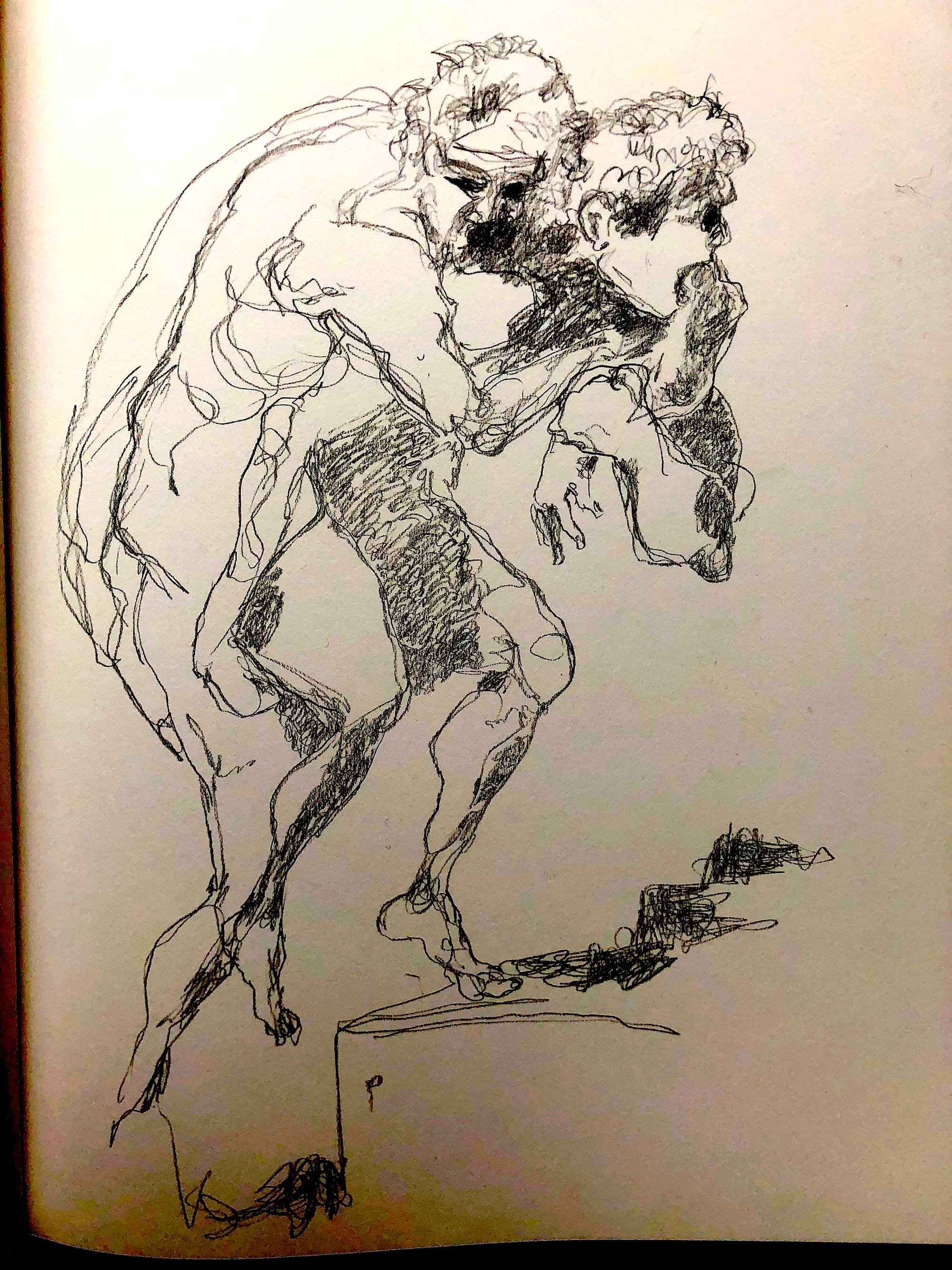
3:16: So what causes us to act as we do? When I think I might go and get another coffee before reading some more, is that just a commentary on what my inaccessible drives are making me do? Am I a spectator? Is my will not really mine? This seems to distort the phenomena to be explained?
MR: The basic answer is that our drives cause us to act by inducing a suitable affective state. To take your example: you get another coffee because some drive or other causes an affective state that causes you to do that. Of course, that action may result from different drives being active, depending on one’s psychological makeup and situation. Here are two possible cases: if you’re a compulsive coffee-drinker, then you developed what we may call a “coffee drive” which simply causes your desire to drink another cup of it. But maybe you don’t drink much coffee usually. However, now it’s late and you promised your colleague to give her feedback on her paper draft, so, even if you’re tired, the disposition you acquired to keep your promises makes you drink the coffee and go on reading. Now, reflectively conscious deliberation or intention formation do sometimes figure prominently in the experience we have of ourselves as agent. When this happens, it looks to us that such activities and mental states are what causes our actions.
But Nietzsche’s picture is, indeed, highly revisionary with respect to this kind of agentive experience. In general, he is skeptical about introspection, and explicitly argues that volitional experience, in particular, is largely illusory (see Beyond Good and Evil 19). I don’t think, however, that he takes the agent to be a mere “spectator”. Psychologically, the agent is constituted by a certain drive hierarchy. As we saw above, her first-person perspective is not detached from that drive hierarchy, but (usually) is just the perspective of the highest-ranked drive(s) within it. As long as we identify with the perspective of the drive that makes me act the way I do, we can say that what I do is really mine. Of course, that doesn’t always happen, for instance when my action is acratic. In that case, my first personal perspective and that of the drive that makes me act the way I do are not the same. But that doesn’t mean that I take up a point of view that is detached from that of my drives. Rather, I simply take up the perspective of another drive. As Nietzsche writes in a famous passage (from Daybreak 109): while “‘we’ believe we are complaining about the vehemence of a drive, at bottom is one drive which is compelling about another”.
But so why do we at all engage in reflectively conscious deliberation and intention formation if our actions are not caused by those mental activities and states, but by sub-personal processes involving the drives? Nietzsche’s answer to this question lies in the story he provides about the evolutionary history of reflective consciousness itself. As he sees it, its function lies in socialization and communication. To interact with other people I need to be able to describe and justify what I think, feel, want and do. That’s one reason why we need to produce the “commentary” you refer to in your question (Nietzsche himself uses this metaphor in aphorism Daybreak 119, where he says that “consciousness is a more or less fantastic commentary on an unknown, perhaps unknowable, but felt text”.)
We need to make sense of what is going on in our mind and of what we do because sooner or later we will have to tell it to other people. As I briefly mention in the book, a similar hypothesis has been recently put forward by the psychologist Chris Frith: (reflective) consciousness evolved not because of its contribution to the aetiology of actions (for it doesn’t contribute to it at all), but because it allows us to share our experiences and cooperate with other human beings. A last point: this means that our drives aren’t absolutely inaccessible. For as long as participation in social practices forces us to make sense of our mental life, we do become aware of them in some way.
There is a further point, however. On the one hand, according to Nietzsche we interpret ourselves by self-applying the folk-psychological framework we have acquired from the society we live in. On the other hand, such frameworks are wrong. Thus, as the way in which we make sense of our mental life is based on a wrong picture of it, it does indeed turn out that our reflective awareness of it is deeply distorted. In short, it’s true that we don’t get any reliable picture of how the mind work, including the basic role that drives and affects play in it. This is, at the same time, the major motivation for Nietzsche’s general skepticism about introspection.
3:16: So for Nietzsche how does he characterize the ideal human type?
MR: I argue that Nietzsche’s ideal type—the kind of human being he hoped to promote by writing his books—have three main traits. First, it needs to have a stable drive configuration. This requirement is not very substantial: absent that feature, one is simply unable to stick to any important project, for one would lack the necessary will strength. (Nietzsche’s picture of such an “anarchic” soul comes very close to Plato’s “democratic” soul in the Republic. In general, as some scholars have pointed out, there are striking similarities between Plato´s soul typology and Nietzsche’s own one.) Displaying strength of will, however, is not enough to count as an instance of the ideal type, for a religious fanatic can be strong-willed in that way and we all know that Nietzsche didn’t really appreciate that sort of psychological profile.
Thus—and that’s the second trait—the ideal type also needs to be psychologically non-divided, a point already stressed by scholars such as John Richardson, Ken Gemes and Paul Katsafanas: roughly, instead of repressing or even trying to eradicate some of her drives and, consequently, feeling alienated from them, she needs to co-opt them for whatever project she aims at pursuing. An example of this sort of harmonious and all-embracing psychological makeup is Goethe, to Nietzsche’s eyes. Now, this may seem enough to fill the bill. Somewhat surprisingly, however, Nietzsche often insists that the ideal type also needs to be a value-creator, that is, someone who does not simply accept the values of the society in which she lives, but who sets her own evaluative standards.
Why does he suggest that this third trait is also needed for someone to count as an instance of the ideal kind? My answer to this question is that Nietzsche’s picture of the ideal type is tailored to his late-modern readers. These are still in the grip of Judeo-Christian morality, which means they are self-divided. Therefore, to overcome self-division (and thus satisfy the second requirement), they first need to change their evaluative outlook. More precisely, they need to bring about an “evaluative inversion” (that’s the literal meaning of Nietzsche’s famous Umwertung), they have to trade in the nihilistic evaluative outlook they have inherited from Judeo-Christian morality for an affirmative one.

3:16: How does this theory fit into, or crash into, Kant, Hegel and the post-Kantian philosophical landscape? And more generally, does this mean that philosophy of science and people involved in mind sciences generally would benefit in knowing a lot more about that literature, as well as, as I suggested, the early moderns literature around occasionalism and dualism, even panpsychism (although I think you’ve argued that although he argued against Kant’s notion of ‘things in themselves’ he didn’t go further and argue that the will to power is a fundamental physical force which a panpsychist reading, such as given by Galen Strawson would require haven’t you?) ? In fact, doesn’t your work here suggest that many of the contemporary headaches of the ‘hard problem’, for example, and freewill debates, and all the moral and ethical stuff, would gain from taking a look at a much bigger and less parochial library of philosophy than seems to be being used at the moment?
MR: Well, that’s a bunch of big questions. I don’t think I can give a good (and short!) answer to all of them, but I’ll give my best. I take first the point about Nietzsche’s place in the post-Kantian tradition. I guess there are many ways to carve things there, but given the focus of my book, I do it from an angle that Sellars nicely captures in just a few words in his essay “Philosophy and the Scientific Image of Man”. There he notes that 19th century philosophy introduced a substantive refinement of the “manifest image” elaborated on by what he calls the “perennial” tradition, namely the idea that the very conceptual framework of that image is a social phenomenon. I think Sellars is right to stress the relevance of this development: it can be seen as a first and distinctive wave of externalism about the mental. Anyway, Hegel’s philosophy of Geist is the most famous example of that.
But one thing that I wanted to show is that Nietzsche’s views about the social emergence of reflective consciousness constitute an equally important chapter in that story. It is important for two main reasons: first, contrary to Hegel’s one, Nietzsche’s philosophical approach is naturalist; second, and—as it seems to me—as a consequence of that, Nietzsche treats the self-conscious side of the human mind as its “superficial” one, as we saw above.
I do think we can gain fruitful insights from the work of older philosophers as well as of philosophers from different traditions. So, yes, we should definitively expand our parochial canon. More concretely about Nietzsche’s own case: indeed, there are issues in the philosophy of mind about which he seems to me to offer views that are original and worth considering. Underappreciated examples I focus on in my book are his skepticism about introspection (as Eric Schwitzgebel noted, a position philosophers rarely endorse) and his (somewhat inchoate) views about the function of mind-reading and its coevolution with reflective consciousness. And some of Nietzsche’s views have already inspired contemporary philosophers working on mind and moral psychology, such as Jesse Prinz and Joshua Knobe, among others. (But, of course, there are issues in those areas about which Nietzsche doesn’t have much to say. Somewhat ironically, my own (limited) contribution to contemporary philosophy of mind concerns something he isn’t at all interested in, namely the phenomenon of perceptual presence. Husserl is the one who proves helpful there.)
Panpsychism may be an issue about which engaging with 19th century philosophers could still be rewarding. I don’t think, however, that it proved central to Nietzsche’s thought. We have unpublished notes showing that he entertained a conception of reality that arguably entails panpsychism: the infamous metaphysical version of his will-to-power notion. But he never endorses that view in any explicit and straightforward way in his published writings.
3:16: And finally, are there five books you can recommend that would take us further into your philosophical world?
MR: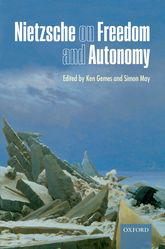
Ken Gemes & Simon May (eds.) Nietzsche on Freedom and Autonomy. Oxford University Press 2009. There are many terrific books about Nietzsche, but this collection contains many of the most stimulating papers I’ve read about his picture of human agency.
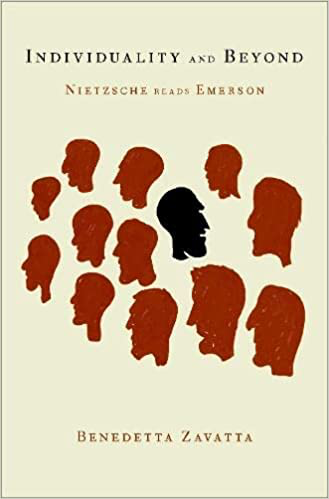
Benedetta Zavatta. Individuality and Beyond. Nietzsche Reads Emerson. Oxford University Press 2019. This recent book is a fine example of the philologically informed approach to Nietzsche’s texts that goes back to the work of Mazzino Montinari, one of the two Italian editors of the German critical edition of Nietzsche’s writings. Zavatta thoroughly reconstructs Nietzsche’s relation to Emerson and shows its philosophical significance.

Rae Langton. Kantian Humility. Our Ignorance of Things in Themselves. Oxford University Press. 2001. I read Langton’s book as a graduate student. It’s still one of the best history-of-philosophy books I ever read. I’ve also been a One-World reader of Kant ever since. (Though I have to say that Nick Stang’s criticism of that reading has been giving me a hard time!).
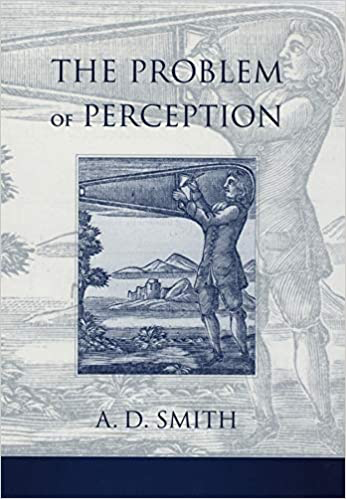
A.D. Smith. The Problem of Perception. Harvard University Press. 2002. Perception is another issue I’ve been working on. What makes Smith’s discussion of the “problem of perception” stand out is the way he draws on the entire philosophical tradition to analyze it—from the ancient skeptics to Fichte and Heidegger.

Jennifer Hornsby. Actions. Routledge. 1980. Finally, I’m also interested in action. Here, Hornsby’s book is just a classic. Her analysis is laser-sharp and illuminating. I also really like her writing style: all dispensable words have been carefully eliminated. It feels like a Raymond Carver’s philosophy book.

ABOUT THE INTERVIEWER
Richard Marshall is biding his time.
Buy his second book here or his first book here to keep him biding!
End Time series: the themes
Huw Price's Flickering Shadows series.
Steven DeLay's Finding meaning series
NEW: Joseph Mitterer's The Beyond of Philosophy serialised